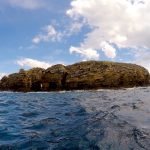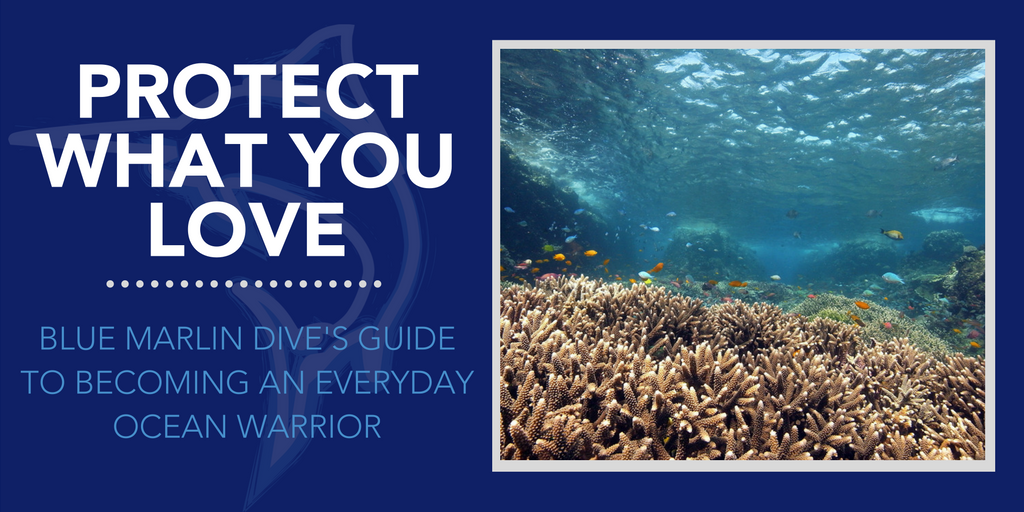 It is said that people protect what they love.
It is said that people protect what they love.
As SCUBA divers we see first hand how the state of the ocean and reefs are deteriorating: stressed and bleached corals, invasive species and discarded rubbish are now present in even the most remote locations. Depending on where you dive it may be more or less obvious but, even without seeing it under the water, we regularly hear of the looming danger to our reefs and oceans. Whether in the form of a viral obituary for the Great Barrier reef (although a bit premature), TEDxTalks warning of rising temperatures, Leo Dicaprio’s Before the Flood (bless that sweet man), the global discussion on climate change, the controversy over Australia’s shark cull, vacationers taking pictures while standing on corals (WHY?!?!), marine creatures found entangled in plastics or with their stomachs filled with plastics or a selection of sharks and rays at fish markets: the evidence is everywhere.
But have we become so deeply entrenched in our own social media echo chambers that those who regularly share their concern are preaching to the choir and not reaching those who are unaware? Is anyone actually unaware anymore or just ambivalent? As divers (or water babies who seek out ocean groups online), what can we do to educate those who still eat endangered marine species, use plastic straws in almost every drink, reach for toiletries with microbeads and purchase pre-peeled oranges?
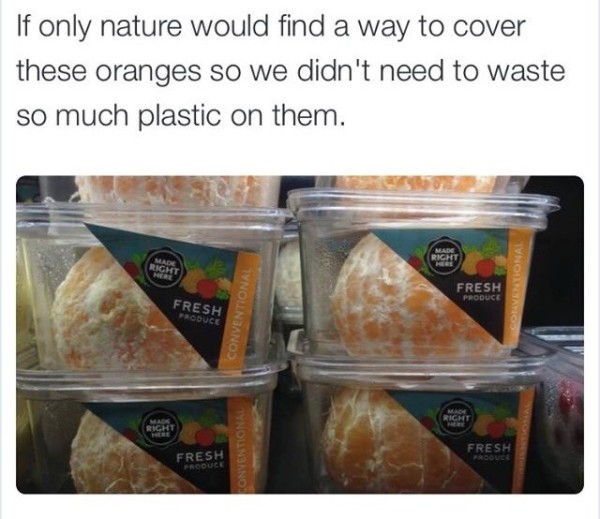
This is real. You can roll your eyes now.
Furthermore, once we reach those people and open their eyes to the problems facing our marine environment, how can we make joining the conservation movement more accessible and easier to partake in?
“Changing our lifestyles based on our morals is not always easy and forces us to face the contradictions that we all live with. Taking ownership for your place on this planet, though, is a great feeling. Making decisions rather than being led by what ‘you’ve always done’ or ‘what everyone else is doing’ is kind of empowering.” – Jo Marlow, Ocean Warrior
Here’s Blue Marlin’s Guide to simple actions that will help to turn you into an everyday ocean warrior.
Avoid Single Use Plastics
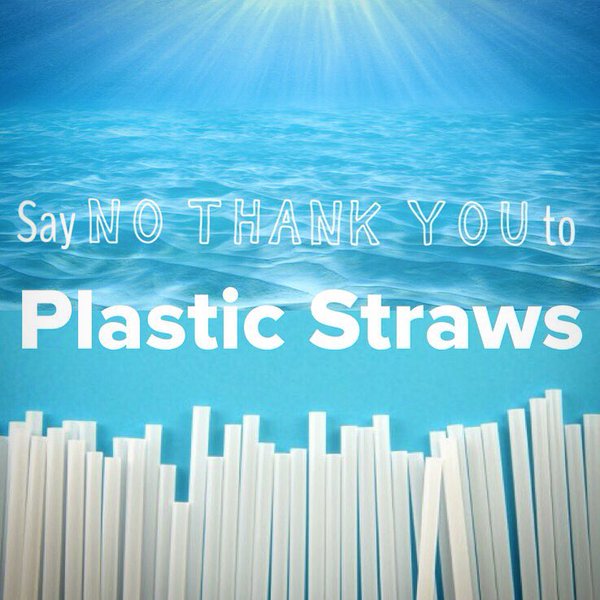
We understand, it can be hard to avoid the plethora of products that are wrapped in plastic, but we can still try and avoid them as much as possible. Did you know that over the last 25 years, over 6 million straws were picked up from beaches? Skipping the straw is an easy place to start. There are many ways to avoid single use plastics, you just generally have to plan ahead. Carry your own cloth tote when shopping, use a reusable water bottle, bring Tupperware to your favourite takeout restaurant, store food in nondisposable containers and recycle whenever possible. And seriously? No more pre-peeled oranges.
Make Smart Seafood Choices

With three-quarters of the world’s fisheries now overexploited, fully exploited, significantly depleted or recovering from overexploitation, many conservationists have made the case for completely cutting all seafood from your diet. However, you don’t have to say ‘sayonara’ to all of your favourite seafood to make a difference. Making informed choices about what seafood you choose to eat is a great start. Look for terms such as “line caught”, “diver caught”, “sustainably caught” or “sustainably harvested”. You can also get an app like Seafood Watch or check on WWF Seafood Guides to see how sustainable your next meal may be. If you are a real sushi addict, explore the newest trend to hit restaurants: sustainable sushi. Knowledge is power.
Don’t Contribute to Products that Exploit Marine Life

Avoid products produced through unsustainable or environmentally harmful methods. Many household items and jewellery are a part of the marine curio trade, which involves the large-scale collection of thousands of types of shells, corals, sponges, starfish, crustaceans, fish and turtles. Conservation experts estimate that each year, this trade removes up to 30 million fish, 1.5 million live stony corals, and 10 million other invertebrates from marine ecosystems across the world. The worst part about it is that many people are unaware that animals were killed so that they could tastefully adorn the back of your toilet bowl. No, these animals were not collected and adding the googly eyes to the inflated carcass of a pufferfish is not cute. Examples of what to avoid include, but are not limited to, cosmetics containing shark squalene, jewellery made of coral, shark tooth souvenirs and tortoiseshell accessories (generally made from the same hawksbill turtles that you enjoyed diving with).
Furthermore, vote with your feet by not patronising excursions and tours that profit off of captive animals. Many people don’t realise that many dolphins at these exhibits have been captured and taken from their families in the wild. As naturally social creatures, their lives in captivity are incredibly stressful and their life spans are often dramatically shortened. Never participate in a swim-with-dolphins programme. And if you are tempted, turn on “The Cove”.
Be Water Wise
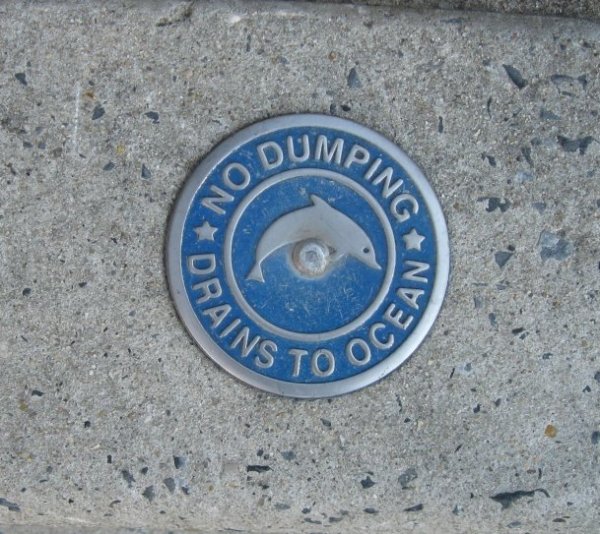
Get Involved
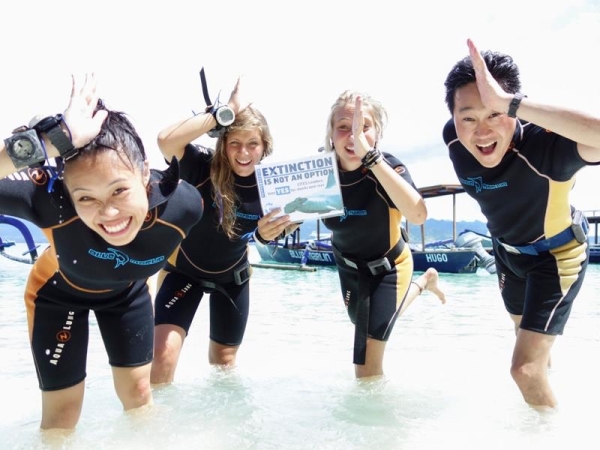
With just a quick Google search, you’ll be able to find various organisations fighting to protect ocean habitats and marine wildlife. Consider giving financial support or volunteering your time. Help with beach and reef clean-ups on your holidays or near your home, organise or participate in a Project AWARE Dive Against Debris , pick up rubbish on every dive, sign up for courses about coral reef protection like the Project AWARE Coral Reef Conservation speciality course or the Project AWARE Fish Identification speciality course.
Get your friends and family involved as well and tell them about the things you do. It’s been proven that nature not only lowers stress levels and improves moods, but we are more likely to take better care of nature if we connect with it more frequently. Plus, social science has shown that people are most receptive to changing their behaviour if they hear from people they know and trust. Sharing an experience, leading by example and making personal connections will bring your plight of being an Ocean Warrior to new people in a meaningful way.
And if you’re diving?
Of course, these are just everyday activities. As divers, there are plenty more ways to remain eco-conscious. If you find yourself diving remember to use reef-safe sunscreen, to respectfully interact with marine creatures and work on honing your buoyancy. If you are concerned about running into fragile ocean life, take the PADI Peak Performance Buoyancy Specialty course to work on your skills. Also, as a diver, pledge to follow Project AWAREs 10 tips for divers to protect the ocean planet.




